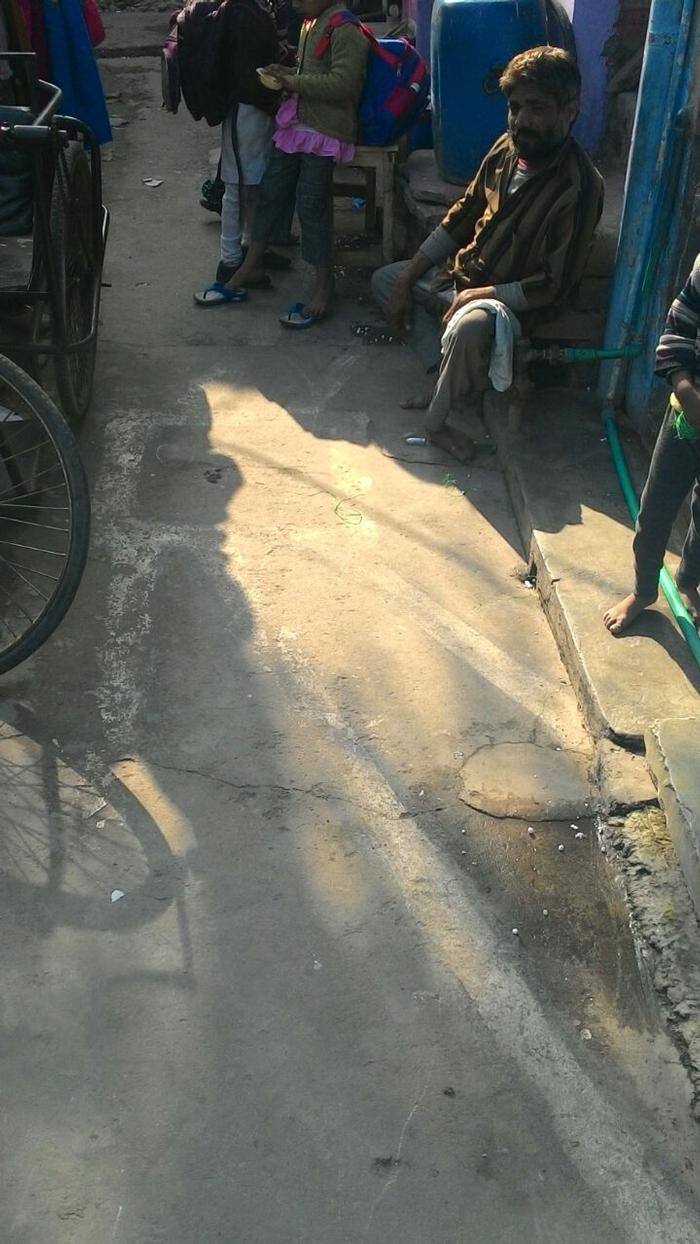Chandana Rajanna and Hanan Qureshi ProposalIncremental Changes Bring Immense Happiness to the Urban PoorIndia accounts for around 600 million out of the total 1 billion people who don’t have access to proper toilets. Many people defecate in public areas which leads to serious health problems. The fact that about 1000 children, under the age of 5, in India, die every day because of diarrhea – one of the numerous diseases caused due to poor sanitation- is a stark pointer. The problem is exacerbated in the urban slums dotting the Indian landscape because of the highly congested living conditions of the urban poor. Centre for Urban and Regional Excellence (CURE) is a Delhi-based NGO that is doing remarkable work in such areas to enable dignified living environments for the underserved urban poor. A representative example of that is its project in Savda Ghevra, potential home to more than 20, 000 families on the western periphery of Delhi, which is deemed to be the biggest slum resettlement colony in the national capital region. The colony has 1 community toilet per 250 residents which results in terrible sanitary conditions. Such was the magnitude of the problem that the lead designer associated with CURE on this project, Julia King, a British-Venezuelan architect, in response to our question, said that it had seemed somewhat ‘naïve’ to take up the project back in 2011. But, now, to see the fruits of her efforts must be a fulfilling experience. She has designed a novel decentralized sanitation system that, through a participatory planning approach, has enabled many households to have personal toilets which, among other things, protects the privacy of women and deters molestation. So far, the construction of toilets in 322 households has been completed and the success of the project is evident from the visible enthusiasm among the other residents to become a part of the system. In words of Ms. King, it is an “exemplar small-scale-high-impact project”. Among the various other projects undertaken by CURE, the one in Safeda Basti is significant for its success in enabling the marginalized to be a part of the larger society. Safeda Basti is an illegal slum settlement of 650 families in east Delhi which faced similar sanitary issues. The residents, owing to lack of guarantee of tenure, weren’t willing to construct a toilet in their houses. Through advocacy, the Delhi Jal Board (DJB), which is officially responsible for handling the city’s sewers, was taken on board. The participation of a government body in the process allayed the fears of the slum-dwellers of any imminent forcible eviction from the place by the authorities and they became much more forthcoming to invest in proper sanitary facilities. In our final essay we hope to elaborate on how good sanitation is interlinked with better living, working, education, and recreation and the impact of the architectural interventions by CURE. We will talk about the challenges faced in providing proper sanitation in a country like India and how CURE’s mode of operation has proved successful in tackling them. Both CURE and Ms. King have assured us of their support. Additional Help and InformationAre you in need of assistance? Please email info@berkeleyprize.org. |
|

